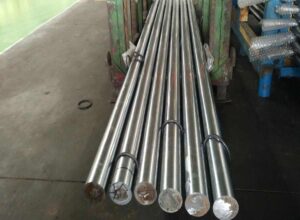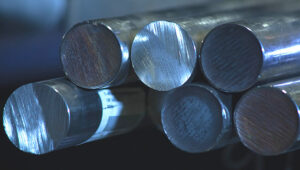Introduction
Die casting is a precise and versatile manufacturing process that has revolutionized the production of complex metal parts and components. At the heart of this transformative process lies hot work tool steel, a material engineered to excel in the most challenging of conditions. In this comprehensive exploration, we will uncover the intricacies of hot work tool steel and unveil why it is the ideal choice for die casting. From its remarkable heat resistance to its unparalleled wear resistance, we will delve into the unique properties that make hot work tool steel an indispensable asset in the world of die casting.
Demystifying Die Casting<a name=”demystifying-die-casting”
Die casting is a manufacturing process where molten metal is injected into precisely shaped molds to create intricate parts and components. This process requires materials that can withstand extreme heat and mechanical stress, which is where hot work tool steel enters the stage.
The Crucial Role of Hot Work Tool Steel<a name=”crucial-role-of-hot-work-tool-steel”
Hot work tool steel is a high-alloy steel meticulously crafted to thrive in high-temperature environments. Its resilience to heat, wear resistance, and durability make it the material of choice in die casting, where precision and reliability are paramount.
The Science Behind Hot Work Tool Steel<a name=”science-behind-hot-work-tool-steel”
Hot work tool steel‘s exceptional properties are a result of its unique metallurgical composition. Elements like chromium, tungsten, molybdenum, and vanadium combine to create a material that can endure extreme conditions without compromising its structural integrity.
Heat Resistance: The Foundation of Die Casting<a name=”heat-resistance-foundation”
1. Extraordinary Heat Tolerance
The hallmark of hot work tool steel is its unparalleled heat resistance. It can withstand temperatures exceeding 1000°C (1832°F) without deformation, ensuring that the molds used in die casting maintain their shape and precision.
Unyielding Wear Resistance<a name=”unyielding-wear-resistance”
2. Prolonged Tool Life
Die casting molds are subjected to continuous wear and abrasion due to the molten metal. Hot work tool steel’s exceptional wear resistance prolongs the life of these crucial tools, reducing downtime and maintenance costs.
Toughness: Durability Under Pressure<a name=”toughness-durability”
3. Resilience in Adverse Conditions
Beyond heat and wear resistance, hot work tool steel possesses remarkable toughness. This resilience prevents tools and dies from succumbing to the harsh conditions they encounter during die casting, ensuring longevity and reliability.
Dimensional Stability: Precision in Every Cast<a name=”dimensional-stability-precision”
4. Consistent Precision
In die casting, precision is non-negotiable. Hot work tool steel’s dimensional stability, even under high temperatures, guarantees that each casting adheres to strict tolerances, eliminating costly rework.
Machinability: Shaping the Future<a name=”machinability-shaping-future”
5. Versatile Machining
Hot work tool steel’s versatility extends to its machinability. It can be precisely machined into intricate shapes and forms, making it an ideal choice for various die casting applications.
Hot Work Tool Steel in Action<a name=”hot-work-tool-steel-in-action”
6. Widely Used in Die Casting
Hot work tool steel finds extensive applications in die casting, where it plays a pivotal role in creating components for industries such as automotive, aerospace, and consumer electronics.
Challenges in Die Casting<a name=”challenges-in-die-casting”
7. Harsh Conditions
Die casting exposes tools and dies to extreme temperatures and mechanical stress. Without the heat resistance, wear resistance, and toughness of hot work tool steel, the process would be inefficient and unreliable.
FAQ<a name=”faq”
1. Can hot work tool steel be used in other manufacturing processes besides die casting?
Yes, hot work tool steel is versatile and finds applications in processes like forging, extrusion, and hot work tools such as shears and extrusion tools.
2. Are there different grades of hot work tool steel for die casting applications?
Yes, there are various grades of hot work tool steel, each tailored to meet specific die casting requirements. Common grades include H13, H11, and H21, with variations designed to handle different temperatures and operating conditions.
3. How is hot work tool steel heat-treated for die casting applications?
Hot work tool steel can undergo heat treatment processes like hardening and tempering to optimize its hardness, toughness, and heat resistance for die casting.
4. What safety precautions should be taken when working with hot work tool steel in die casting?
Safety is paramount when handling hot work tool steel, especially in die casting, where extreme temperatures are involved. Adequate protective gear, including heat-resistant clothing and eye protection, should be worn. Workers should also receive training in safe handling practices to minimize risks.
5. Can hot work tool steel be recycled after use in die casting?
Hot work tool steel can be recycled, but the extent of recycling depends on factors such as the extent of wear and the specific die casting application.
Conclusion<a name=”conclusion”
In the intricate world of die casting, where precision and reliability are non-negotiable, hot work tool steel stands as the unsung hero. Its exceptional heat resistance, wear resistance, toughness, and dimensional stability make it the perfect choice for shaping metals with precision and consistency. Understanding the pivotal role of hot work tool steel in die casting is crucial for producing high-quality components in industries that rely on the precision and durability of the casting process. In essence, hot work tool steel is the cornerstone of successful die casting, quietly ensuring that every cast is a masterpiece of engineering and metallurgy.

